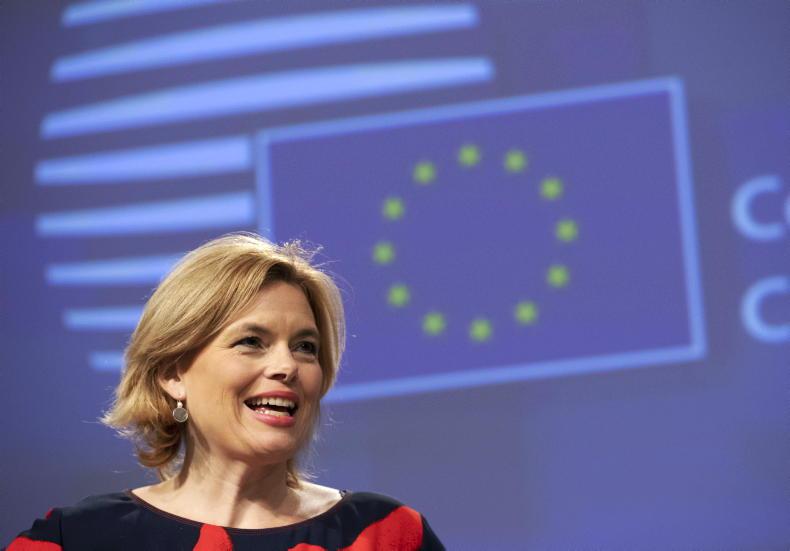At 4.20am Brussels time on Wednesday 21 October, the agricultural ministers from across 27 EU member states struck a compromise deal on the next CAP.
The European Council chaired by the German Federal Minister of Food, Agriculture and Consumer Protection Julia Klöckner met on Monday 19 October for intense discussions. With an agreement now in place, the German presidency has a mandate to enter final trilogue negotiations with the European Parliament.
The outcome of these negotiation, which could begin as soon as November, will determine the final shape of the next CAP.
Irish support
Ireland was among the majority of member states that supported the deal, with Minister for Agriculture Charlie McConalogue giving it his backing after acknowledging efforts to accommodate all sides.
‘In the spirit of compromise’ was the theme of the night, with the stiffest opposition coming from Eastern Europe countries, including Lithuania, which wanted a faster convergence of farm payments.
For farmers, the deal will have a major bearing on their direct payments.
Ministers agreed to ring-fence 20% of the direct payment envelope for eco-schemes. To secure this payment farmers will have to undertake environmental or climate-related actions above the basic requirements of cross-compliance.
Eco-schemes
For Ireland, this will see some €237m tied into these schemes annually. Minister McConalogue was among those that raised concerns a ring-fenced allocation could result in lost funds if take-up was low.
To address these fears, the presidency agreed to a two-year learning phase in which the allocation of funding to eco-schemes would be flexible. It is understood that unused funds can be moved into rural development spending in a similar area.
However, Minister Klöckner gave a clear warning to ministers that the CAP budget agreed earlier this year was based on an expectation of a ‘greener’ CAP. She said any backsliding on environmental ambitions would weaken the argument for a strong budget.
The Council is now awaiting the outcome of votes in the European Parliament after which CAP will enter the home stretch.
Read more
European Parliament votes down motion to reject CAP proposal
CAP countdown: what you need to know
At 4.20am Brussels time on Wednesday 21 October, the agricultural ministers from across 27 EU member states struck a compromise deal on the next CAP.
The European Council chaired by the German Federal Minister of Food, Agriculture and Consumer Protection Julia Klöckner met on Monday 19 October for intense discussions. With an agreement now in place, the German presidency has a mandate to enter final trilogue negotiations with the European Parliament.
The outcome of these negotiation, which could begin as soon as November, will determine the final shape of the next CAP.
Irish support
Ireland was among the majority of member states that supported the deal, with Minister for Agriculture Charlie McConalogue giving it his backing after acknowledging efforts to accommodate all sides.
‘In the spirit of compromise’ was the theme of the night, with the stiffest opposition coming from Eastern Europe countries, including Lithuania, which wanted a faster convergence of farm payments.
For farmers, the deal will have a major bearing on their direct payments.
Ministers agreed to ring-fence 20% of the direct payment envelope for eco-schemes. To secure this payment farmers will have to undertake environmental or climate-related actions above the basic requirements of cross-compliance.
Eco-schemes
For Ireland, this will see some €237m tied into these schemes annually. Minister McConalogue was among those that raised concerns a ring-fenced allocation could result in lost funds if take-up was low.
To address these fears, the presidency agreed to a two-year learning phase in which the allocation of funding to eco-schemes would be flexible. It is understood that unused funds can be moved into rural development spending in a similar area.
However, Minister Klöckner gave a clear warning to ministers that the CAP budget agreed earlier this year was based on an expectation of a ‘greener’ CAP. She said any backsliding on environmental ambitions would weaken the argument for a strong budget.
The Council is now awaiting the outcome of votes in the European Parliament after which CAP will enter the home stretch.
Read more
European Parliament votes down motion to reject CAP proposal
CAP countdown: what you need to know







 This is a subscriber-only article
This is a subscriber-only article










SHARING OPTIONS: